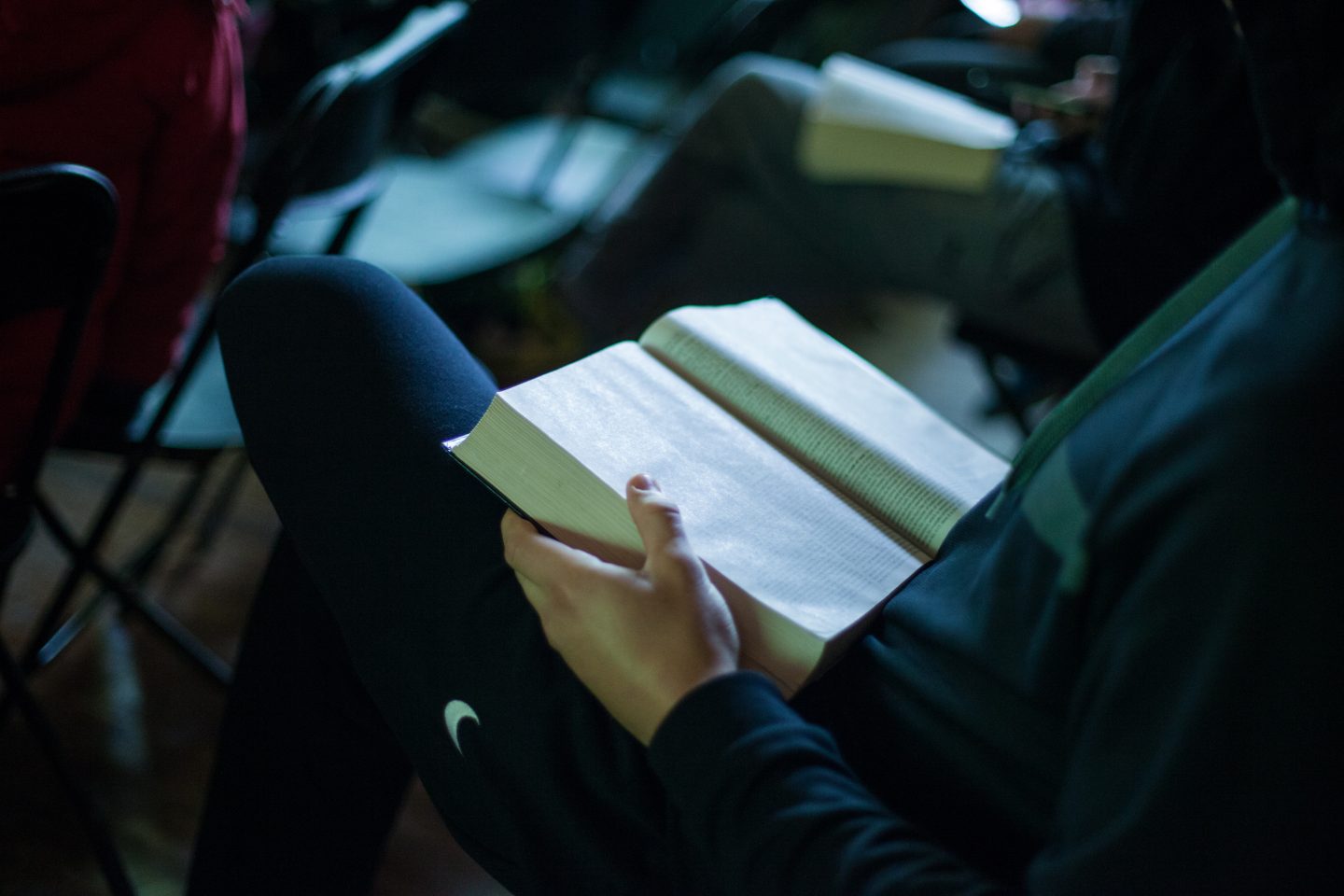I’ve definitely ghosted people.
Okay, I admit it.
There was a guy who just suddenly “popped up” in my life and we seemed to totally vibe. I loved hanging around him, liked his attention, and he seemed to return the favour. But then, after a few weeks, I started to realize that the friendship wasn’t going to work. Just when it seemed like we were growing closer, I feared he was getting too invested.
I stopped vibing.
The bigger problem was that I was too afraid to actually tell him that I wasn’t “into” the friendship anymore. So I tried to give him the hint when I stopped replying to his messages. It was “convenient” that it also happened after I moved and started a new role with work. I told him I was busy (and I was!), but honestly, even though it was unloving and immature, I just didn’t want to talk to him. So I ghosted him.
That’s why I felt like God was ghosting me when I didn’t receive answers to prayer. The pattern seemed all too familiar. What other explanation could there be?
The feeling of being ignored, rejected, or ghosted, can be incredibly painful. Especially when it’s by the people we care about most. When we feel ghosted by God, when he doesn’t seem to respond to us or answer our prayers, what is really going on? Is God ever “done” with me? Will he dump me as easily as I can dump a friendship I feel finished with?
Stuck in silence, but healing in stillness
Even though my head knows that the answer to all of these questions is a firm “NO”, my heart is prone to doubt–especially when God seems to answer the simple things in my life, yet stays silent about the things which seem to matter the most.
The silence of God can feel as consuming as quicksand, not willing to let me go. It pulls me down into the depths of despair, into the valley, where all I can see are the mountains of my own sin, questions, and doubt.
Silence can seem just as deafening as screaming. My heart in pain cries out to an all-powerful God who seems to do and say nothing.
I am not the first person to experience the silence of God. In the bible, there is a collection of poetry and music called the Psalms, written mostly by David, a king who walked closely with God. He was a man who experienced joy, celebration, assurance, hope, and deep peace, but also dark moments, and felt God’s silence acutely:
My God, my God, why have you forsaken me? Why are you so far from saving me, from the words of my groaning? O my God, I cry by day, but you do not answer, and by night, but I find no rest. (Psalm 22:1-2 ESV)
Did God really abandon David? He may have perceived it in that moment, but I don’t think God really turned away from him. It was in those valley moments where David’s faith was tested and strengthened. Later on in the Psalms, David writes about how God is ever present and our stability and protector in the darkest moments:
God is our refuge and strength, a very present help in trouble. Therefore we will not fear though the earth gives way… The nations rage, the kingdoms totter, he utters his voice, the earth melts. The Lord of hosts is with us; the God of Jacob is our fortress. (Psalm 46:1-2,6-7 ESV)
Silence can leave us with more questions than answers, and often more hurt than healing. But perhaps there is healing in the silence, hidden for us to find. With silence there is often stillness. We sometimes pursue busyness and distraction because we fear stillness, and the silence that comes along with it. Yet God speaks in the stillness, and in the silence too. He says later in Psalm 46, “Be still, and know that I am God.” Does God reveal himself in the dark moments of silence? Can we know him deeper when we are still? He does, and we can.
In the valley we can see him
There is an old Puritan prayer called The Valley of Vision which speaks into the place we can find ourselves in when we feel stuck in God’s silence.
Lord, high and holy, meek and lowly, Thou hast brought me to the valley of vision, where I live in the depths but see thee in the heights; hemmed in by mountains of sin I behold thy glory. Let me learn by paradox that the way down is the way up, that to be low is to be high, that the broken heart is the healed heart, that the contrite spirit is the rejoicing spirit, that the repenting soul is the victorious soul, that to have nothing is to possess all, that to bear the cross is to wear the crown, that to give is to receive, that the valley is the place of vision. Lord, in the daytime stars can be seen from deepest wells, and the deeper the wells the brighter thy stars shine; Let me find thy light in my darkness, thy life in my death, thy joy in my sorrow, thy grace in my sin, thy riches in my poverty thy glory in my valley.
Often when we are in a valley, a low place where God may seem silent, or when our painful circumstances overwhelm us, we can also see God’s glory shine brighter. This is a paradox of the Christian life. God dwells and walks with us even in the days, weeks, years, and seasons where we find ourselves in the valley.
Assurance found in looking to Jesus
Even in the darkest moments where the silence of God appears enormous, the bible is filled with promises that God will never truly ghost us. He will never turn away, abandon or forsake us.
But how can we really know for sure?
We can be assured of these promises because instead of turning away from us as a result of our brokenness or sin, God abandoned Jesus instead. Doesn’t that seem extreme? Why would God do that?
When Jesus willingly took responsibility for our wrongdoing against God and others, he accepted the punishment and wrath of God. God turned away from Jesus as he died on the cross. In fact on the cross, Jesus quotes David in Psalm 22, and cries out to God right before he dies: “My God, my God, why have you forsaken me?” (Matthew 27:46, ESV) David felt like he was being rejected by God, but Jesus really was rejected by God. He experienced total separation from God so that we can experience unity and restoration with God.
The silence of God also doesn’t always come from our sin or mistakes. Sometimes God is silent even when we haven’t done anything wrong. Like when we suffer because of what someone else has done to us, or because we live in a world filled with brokenness, pain, and death. But even when we cry out and the only response is silence, or when we find ourselves in the valleys and may feel far from God, God is never far from us.
Death and darkness didn’t have the final word. It wasn’t the end of the story. Jesus’ resurrection from the grave reveals that he has eternal life and power over darkness. When we are spiritually united with Christ, given new life through our faith and following of Jesus, we share in that eternal life and have power over darkness, too.
The silence of God isn’t the end of our story. The absolute ghosting of Jesus, by God, on our behalf, and his triumph over death and darkness, guarantees this.
He is with us in the valley.
"*" indicates required fields
Share this!
About the Author





